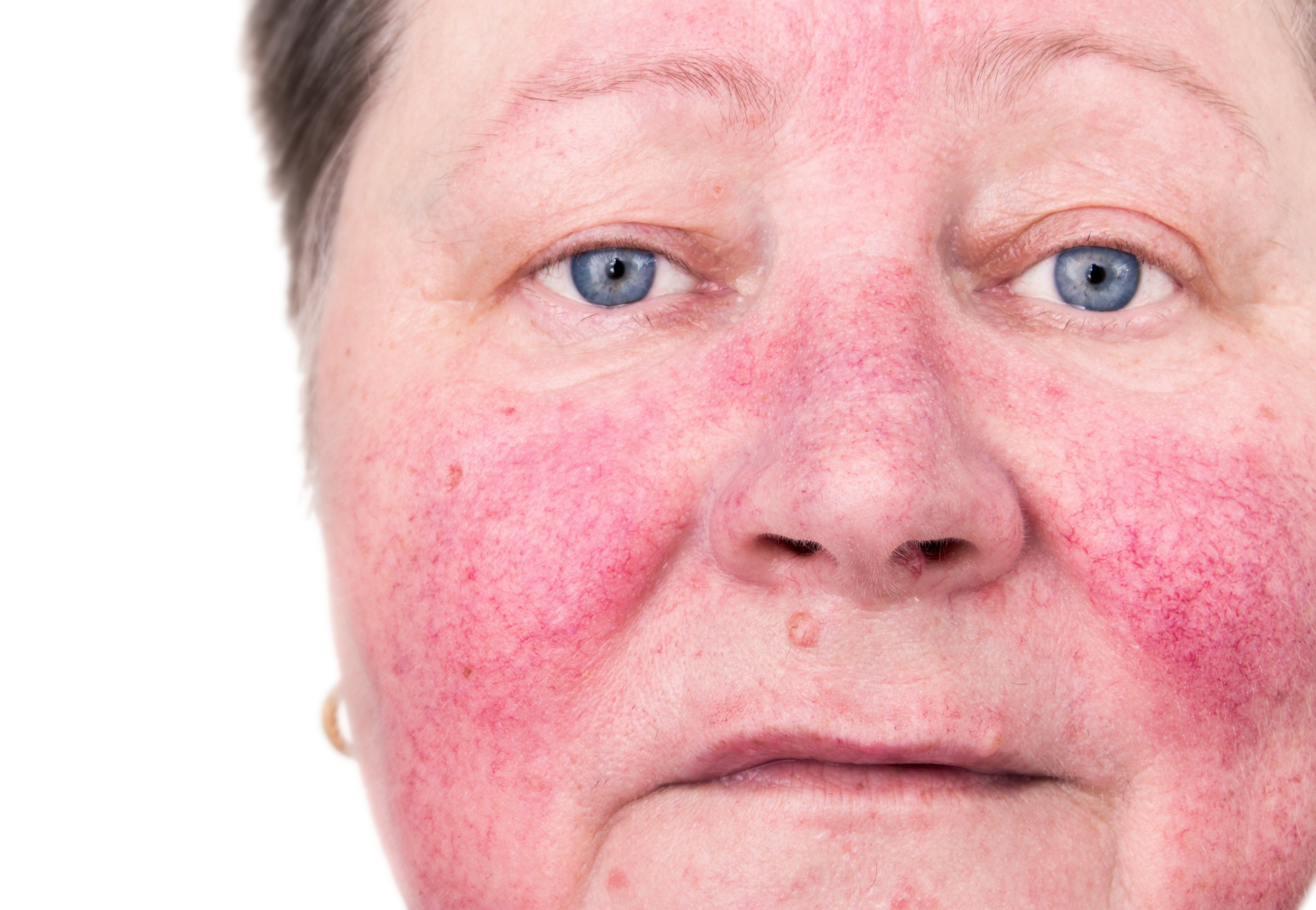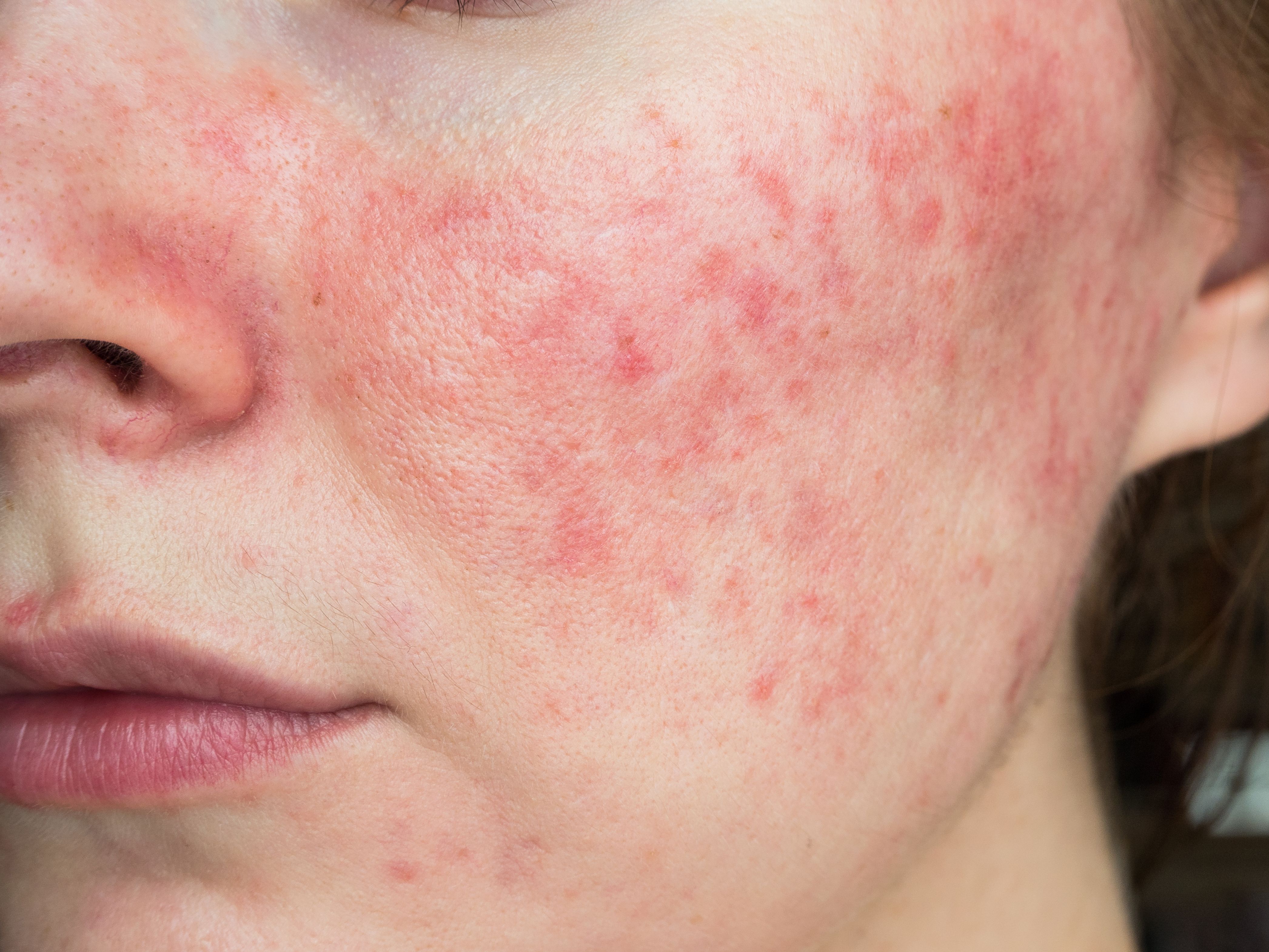- Case-Based Roundtable
- General Dermatology
- Eczema
- Chronic Hand Eczema
- Alopecia
- Aesthetics
- Vitiligo
- COVID-19
- Actinic Keratosis
- Precision Medicine and Biologics
- Rare Disease
- Wound Care
- Rosacea
- Psoriasis
- Psoriatic Arthritis
- Atopic Dermatitis
- Melasma
- NP and PA
- Skin Cancer
- Hidradenitis Suppurativa
- Drug Watch
- Pigmentary Disorders
- Acne
- Pediatric Dermatology
- Practice Management
- Prurigo Nodularis
- Buy-and-Bill
Publication
Article
Dermatology Times
Oxymetazoline, pulsed dye laser show promise for rosacea
Author(s):
A recent preclinical trial reveals that oxymetazoline in combination with pulsed dye laser may increase vascular shutdown in patients with rosacea and other cutaneous vascular diseases.
Oxymetazoline, when used with PDL, caused a higher rate of vascular shutdown than a combination of saline and PDL, a recent study shows. (Milan Lipowski - stock.adobe.com)

Researchers are considering a new use for oxymetazoline after results from a recent preclinical trial showed its promise when used in conjunction with a pulsed dye laser (PDL).1
RELATED: Global panel updates rosacea recommendations
Until recently, 뱉1A agonist was typically used as a nasal decongestant that works by reducing the size of dilated blood vessels in the nasal passage. The U.S. Food and Drug Administration, however, approved a topical formulation of oxymetazoline as a treatment for rosacea and other facial erythema diseases in January 2017.2
In a preclinical trial, conducted by researchers from the University of California located in Irvine, Calif., investigators found that oxymetazoline, when used with PDL, caused a higher rate of vascular shutdown than a combination of saline and PDL.
Researchers began their trial by surgically installing a dorsal window on 20 mice to examine vasoconstriction. The mice were split into four groups. Each group received 10 microliters of saline or oxymetazoline, while only two of the four groups received a combination of PDL and either saline or oxymetazoline.
RELATED: Study examines PDL for port-wine in infants
Over the course of seven days, researchers applied saline or oxymetazoline to the epidermal side of the dorsal windows once a day, along with PDL if it was applicable. Brightfield and laser speckle imaging was also utilized to monitor any changes.
The results of the trial showed there was still persistent blood flow in the oxymetazoline-only and saline-only groups. However, researchers found there was a higher rate of vascular shutdown with PDL and oxymetazoline (66.7%) than with PDL and saline (16.7%) - a 50% difference.
RELATED: IL-17 inhibitors may fill treatment gap in rosacea
In addition, five minutes after oxymetazoline was applied, the venule diameter increased, while the arteriole and venule diameters decreased after 60 minutes of the application.
According to the researchers, “an increase in vessel diameter would increase the local volume of hemoglobin, which in turn would increase the volumetric heat generation resulting from PDL irradiation. The decrease in arteriole and venule diameter at 60 min may facilitate the ensuing photoâinduced coagulation effect.”
While the results of the preclinical trial show promise, clinical trials will still be required to establish the efficicacy and safety of the combination treatment. Limitations of the study include the small sample size of the trial, and the fact mice having different skin and vasculature dorsals than humans, according to the investigators.
With the possibility of the combination treatment moving to clinical trials, physicians could soon have another therapeutic option to offer patients with rosacea and other cutaneous vascular diseases.
References:
1. Kelly A, Pai A, Lertsakdadet B, Choi B, Kelly KM. Microvascular Effects of Pulsed Dye Laser in Combination With Oxymetazoline. Lasers Surg Med. 2019;
2. Allergan Announces FDA Approval Of RHOFADE™ (Oxymetazoline Hydrochloride) Cream, 1% For The Topical Treatment Of Persistent Facial Erythema Associated With Rosacea In Adults. PR Newswire. https://www.prnewswire.com/news-releases/allergan-announces-fda-approval-of-rhofade-oxymetazoline-hydrochloride-cream-1-for-the-topical-treatment-of-persistent-facial-erythema-associated-with-rosacea-in-adults-300393385.html. Published January 19 2017. Accessed December 4 2019.







